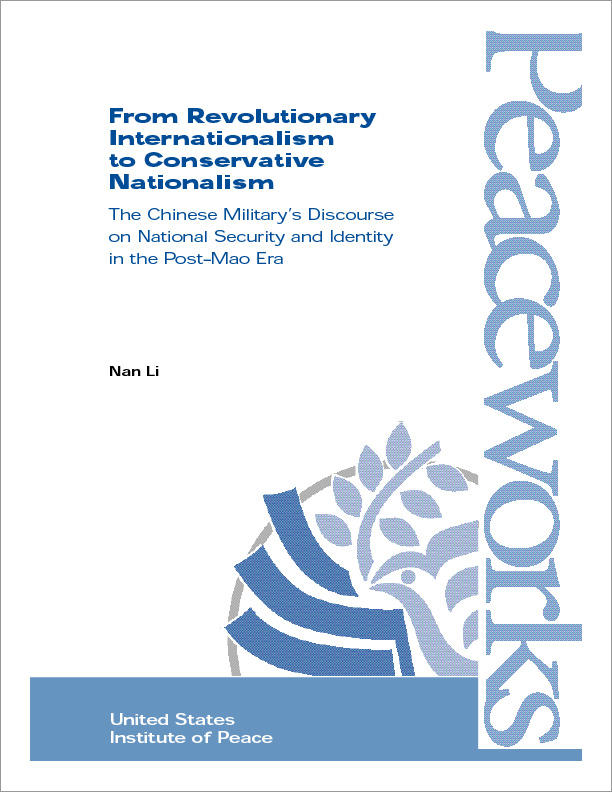Peaceworks 39
Ever since Deng's 1985 "strategic decision" and the corresponding doctrinal change from the country's highest military decision-making body that same year to change Mao Zedong's emphasis on preparing for an early, large-scale, nuclear war, China's military has engaged in a new discourse that is departing from Maoist ideology and moving in a more conservative, nationalist direction. This new military discourse has driven China's foreign policy away from its internationalist and revolutionary foundation toward a proximal orientation, affecting not only the country's national security perceptions, but also the very conception of a Chinese national identity.

Ever since Deng's 1985 "strategic decision" and the corresponding doctrinal change from the country's highest military decision-making body that same year to change Mao Zedong's emphasis on preparing for an early, large-scale, nuclear war, China's military has engaged in a new discourse that is departing from Maoist ideology and moving in a more conservative, nationalist direction. This new military discourse has driven China's foreign policy away from its internationalist and revolutionary foundation toward a proximal orientation, affecting not only the country's national security perceptions, but also the very conception of a Chinese national identity. What are the new dominant themes in Chinese military discourse regarding identity and security from 1985 to the present? How are they different from those of the pre-1985 period, and what may explain such differences? Are there alternative voices that challenge the predominant themes in the current military discourse? If so, how significant are they? What are the implications of China's new military discourse for U.S. policy and the management of Asian security? This report attempts to answer these questions.
Nan Li currently teaches political science at the University of Cincinnati, having also taught courses on international relations and Asian politics at Dartmouth College, the University of Massachusetts at Amherst, and Eastern Kentucky University. From 1993 to 1994, Nan was a postdoctoral fellow and associate at Harvard University's John M. Olin Institute. He was a senior fellow at the United States Institute of Peace in 1997–98, during which he conducted the initial research for this Peaceworks report.